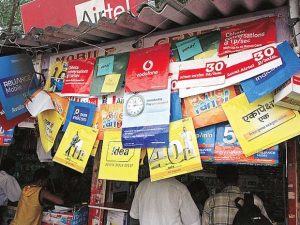
12-12-2016 (Important News Clippings)
To Download Click Here
Towards a cleaner society
Demonetisation may cause temporary pain but will bring rewards over time
Over the past weeks one has witnessed scathing criticism of Prime Minister Narendra Modi’s demonetisation scheme in large sections of media. Much of the criticism rightly blasts the inept quality of implementation; as well as the (terribly under-estimated, in all likelihood) blow to economic activity, in the short term.
In the process, critics have also tended to write off any potential long term benefits of the scheme. “Cash is barely 6% of unaccounted assets, what real difference will it make?”; “the flow of black income is the issue, not the stock; black money will again get re-generated”; “it’s mainly a political gambit” are some of the refrains one hears.
The scheme’s critics may perhaps be throwing the baby out with the bathwater. As shocking as some of the implementation gaffes have been, the jolt of demonetisation – along with all the other tough measures on the anvil – may well represent an inflection point in our society’s quest for transparency. Not because of the physical amount of black wealth it will flush out of the system here and now. But because of its potential to alter our society’s fundamental attitudes towards undeclared income, going forward.Let’s, for a moment, examine the structure and sociology of black money in India. Unaccounted wealth has two very different sources: income from illegal activity – crime, corruption etc; or undeclared income from commercial activity that’s inherently legal.
The latter is likely to form the vast bulk of black money in India. Hence the main contributors to the stock of black money would not be hardened crooks accustomed to a life or risk and danger. Rather, they would be regular denizens of society – morally dodgy, yes, but not deviously criminal: doctors and lawyers, traders and brokers, businessmen of various hues – or indeed almost anyone who has bought or sold property in the repurchase market.
Most people who don’t fully declare their income do so simply because they get away with it, without fear of getting caught. Society doesn’t place a great deal of moral pressure against the malpractice either; it tends to judge tax evasion with a fair degree of indulgence, indeed often with a degree of moral righteousness. “The government misuses our hard-earned taxes so badly, why shouldn’t one avoid paying whatever tax one can get away with”, seems to be the collective voice.In terms of cold economics, the cost of the tax payable is seen by most as being more than that of the risk undertaken. Now, that equation is about to change quite decisively. The trauma and sleepless nights of the past weeks have been a rude awakening for lakhs of hitherto blasé evaders.
More importantly, the cost of laundering (or now, official disclosure) has soared to rates well beyond the top tax rate of 30%. Besides, the dragnet is further closing in, in a variety of other ways: a strong benami act; stricter curbs on transactions using cash; agreements with Swiss banks and other havens for parking funds; and fears of raids on lockers. And with a surge in e-payments paving the way to our becoming a relatively cashless society, tax evaders know that they will increasingly leave a traceable footprint behind.
The cost of tax evasion is hence likely to increase exponentially compared to that of compliance. It’s a safe bet that most hitherto evaders would now prefer to come clean… to breathe easier, and to enjoy the productive benefits of clean wealth.Over time, paying taxes could well become the new normal, just like it is for crores of salaried people who take it in their stride without much thought. That in turn could well help society cross a barrier in its mind, with respect to its basic attitudes towards compliance and transparency.
Having set a tiger amongst the pigeons, the PM now needs to ensure that the momentum unleashed reaches its logical conclusion. Much of the commentary in recent weeks exhorts him to shift focus to arresting the generation of black income at its source. That is advice i don’t think the PM needs; if anything, he needs to be cautioned against similar carpet-bombing when tackling the flow of black income.
He could instead try introducing a carrot in addition to the many sticks being lined up. While a 30% top rate (35% actually, after various extras) seems comparable to that in the developed world, truth is our taxes don’t buy us anywhere near the social security benefits that the latter provides their citizens. Apart from income tax, the GST rate being proposed is also far higher than global norms.
With the vast increase that can be expected in the number of taxpayers, the PM can bet on the incentive of lower taxes too, to further rebalance the economic equation between evasion and compliance.In conclusion: we may be going through a traumatic period of chaos and short-term economic setbacks (much of which could indeed have been avoided with better implementation planning). But let’s not lose sight of the big picture in the process. We may well be at an inflection point in our journey towards becoming a cleaner society. And if we do turn a corner in our minds as a society, the pain we are currently going through would feel like a worthwhile sacrifice, when we look back.
Date: 12-12-16
Cleanup needed
Tyagi’s arrest should trigger systematic reform of the defence establishment

Perimeter security in camps of armed forces in Jammu & Kashmir has been repeatedly breached, suggesting laxity. Recently INS Betwa, a guided missile frigate keeled over and crashed at the naval dockyard in Mumbai. Parliament was informed that 11 squadrons in air force, equipped with MiG-21 and MiG-27 aircraft are scheduled to retire in eight years on completion of their technical life. Also, chiefs of army and air force are due to retire in a few weeks and their successors have not yet been notified.
They point to systemic problems which need comprehensive reforms. The most important reform should be to appoint a new chief of defence staff who will become the single point of military advice to the defence minister. This is a long standing recommendation of experts and is crucial to breaking down silos in defence. Parrikar must act on his promise of reforms and actualise the blueprints prepared over years by different groups of experts. In addition, institutional processes must be strengthened. It doesn’t speak well for the system when there is uncertainty about the line of succession. Moreover the armed forces must have merit-based rather than politics-based promotion and leadership, as the latter results in both poor leadership and corruption.
Level Playing Field, Not Protection
Don’t crimp startup access to global capital

Foreign capital is an enabler for all of Indian industry , the startup ecosystem in particular. In fact, Flipkart and Ola themselves have grown to become unicorns -unlisted startups that are valued in excess of $1billon -on the strength of foreign capital. Zomato, an Indian startup, is trying to become a major player in multiple foreign jurisdictions. Zomato would not like to see its expansion abroad being thwarted by local competition that seeks to erect protectionist barriers citing In dia’s own policies. Nor is capital everything. Uber could not take on China’s homegrown cab aggregator Didi, despite the access it had to deep pockets, and decided to exit after acquiring a stake in the local leader. If Flipkart complains about foreign capital-funded competition to its business, offline retailers could level that very same charge against Flipkart itself. And all unorganised retail could accuse offline and online retail of predatory pricing on the ground that these latter offer discounts they cannot. The Competition Commission of India can certainly play a role to deter predatory pricing, properly defined.
Entrepreneurship that leverages local knowledge and local talent is what enables local companies to withstand the superiority of multinational companies in terms of technology and capital, in any part of the world, including India. Flipkart could choose to outcompete rivals by , say , taking care of after-sales service. Ola could offer drivers incentives, say , health insurance. Indian startups should compete, not complain.
Date: 12-12-16
Countdown to end of the Islamic State

The political legwork that is required to back up the armed action on the ground is extensive. For one, for the ouster of IS to sustain, the US and Sunni governments would have to work with Iran, and that would mean reaching accommodation with the Assad regime in Syria. Since Kurds taking part in the offensive against IS get arms from western powers, Turkey is miffed — Turkey does not want to encourage any demand for an independent Kurdistan that would take some territory from Turkey as well. The ongoing effort in Aleppo by the Syrian and Russian forces on defeating those opposing Syrian President Basher al-Assad is unlikely to ensure peace in the region. IS is still strong in eastern Syria, and could well become the focal point for a regrouping. Other countries in the region, including Afghanistan, Pakistan and India, should be on guard as an under-siege IS could direct some of its activity eastward.
Once Mosul is recaptured, the local Sunni population must not find itself out in the cold, neglected by a Shi’ite government. Failure to ensure an inclusive civilian power structure would leave the possibility of yet another IS takeover. Patience, local support and sustained effort by the coalition forces will be crucial to the defeat of the IS. It would also mean a shift in the policy on Syria and Iran.
दूरसंचार नीति के उलझे तार



